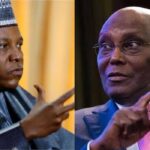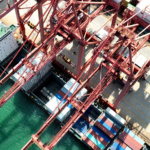By Ben Nwosu & Ndu Nwokolo
The report of a coup in the Republic of Gabon at the end of August 2023 increased the reality of neighbourhood effects of military coups in sub-Saharan Africa, especially the Sahel, since the last three years when there have been at least ten military coups in the continent, and most of them were successful. Presently, the northern flank of the Nigerian map to the Sahel is fully bordered by new military regimes in countries that include Mali, Chad, Niger, Sudan, Burkina Faso, Guinea. The latest among the coups is the one of Gabon in the Central African region, in which an army officer who is a cousin of President Ali Bongo removed him from power. While removing these regimes offers momentary excitement, the uniformed dictators are unlikely to offer better alternatives in the medium and long term. Besides, external political responses to the coups, such as political and economic sanctions, would only worsen the conditions of ordinary citizens living in prolonged abjection in those countries due to bad governance.
Following the most recent coup in Gabon, the forty-year-old regime of Paul Biya in Cameroon and Paul Kagame, who has ruled Rwanda since 1994, immediately undertook a major restructuring in their countries’ armed forces obviously to stave off any possibility of the spread of the coups against their long presidency. Before the Gabonese coup, the putsch in Niger Republic was already a source of international concern with the leading role of the Economic Community of West African States (ECOWAS), which is threatening a military invasion to restore the deposed regime. African leaders that have spent overly extended tenure based on constitutional manipulation and electoral robberies are beginning to alter the command structures of their armies to stave off coups, which may only provide a temporary reprieve. The threats of international sanctions and their implementation do not bear on the core factors that drive putsch in Africa. Hence, in this edition of Nextier SPD Policy Weekly, we engage the coups in Africa, preemptive acts of military reshuffle and the reactive diplomacies to restore elective rule side by side with the main drivers of the recent military coups in Africa.
THE RETURN OF MILITARY COUPS:
The return of coups in recent African politics was in 2012 when Malian soldiers unhappy with the government’s cavalier handling of the conflicts in northern Mali carried out a coup. It took another six years before an election took place in the country for an elective regime. In 2017, Robert Mugabe was overthrown to end his 37-year-old rule in Zimbabwe. The overthrow seemed a welcome development to external political watchers because Mugabe was not a great friend of those who controlled the global political narratives. Another long-serving dictator in Sudan who attained political power through a coup and led an authoritarian regime that spanned twenty years was deposed in a coup in 2019. Subsequently, insecurity, mostly terrorism and insurgencies, increased in sub-Saharan Africa, around the Sahel and Lake Chad Basin. The conflicts created displacement, increasing destruction of lives and livelihoods, and bled the resources of affected countries white. The conflict region became a vast corridor of criminal activities like illegal extraction of natural resources, kidnapping, human trafficking and other crimes that the insurgents depended on for financing their war chest. With the increasing inability of the political regimes in some affected countries to combat the insecurity by properly equipping their forces and paying them, there was multilateral and bilateral external assistance. More than ten years of French, UN and EU assistance did stop terror, crime and insurgencies in Africa. Corruption in the affected countries and declining conditions prompted poorly motivated and ill-equipped soldiers to remove their leaders. Soldiers in Mali once more deposed their leader in 2020 and followed up with another coup in 2021.
Also, in 2021, President Alpha Conde of Guinea was removed through a coup after successfully achieving a constitutional change that allowed him to contest and win the presidency in 2020 despite massive demonstrations. Still in 2021, following the death of the then-serving President of Chad in battle, Idris Deby Itno, the military immediately seized control of the country through a Transition Military Council headed by Mahamat Idriss Deby, the late president’s son. The military has held on to power by repression despite protests by the opposition and civil society groups. Also within the Sahel belt, the Republic of Burkina Faso witnessed two coups in 2022. In January 2022, President Roch Kabore suffered a coup for his alleged inability to unify the country and control the escalating violence from rebels allied with terror groups, leading to the killing of thousands and displacement of about two million citizens. In September of the same year, the junta leader, Paul Henri-Damiba, was also deposed via a military coup by Captain Ibrahim Traore, citing the same concerns about the failure to control the security situation in the country. A further coup in the Sahel took place on 26th July 2023 in Niger Republic when Mohammed Bazoum was removed by troops led by General Abdourahmane “Omar” Tchiani, commander of the presidential guards citing economic and security problems in the country.
To sum up the main drivers of the coups, first, there is the failure of governance, which occasions both economic hardship and insecurity. Second, electoral robbery and constitutional manipulation of term limits stood out in the cases of Zimbabwe, Guinea and, more recently, Gabon. Third is the nature of French relations with her former colonies, which forms the basis of their military relations. In the case of Burkina Faso’s last coup, the rejection of the military pact between the two countries is a factor that underpins popular support for the coup leaders. The core of the so-called anti-French rhetoric is coup leader withdrawal of their countries from colonial treaties with France, which places ex-colonies perpetually under French control. The recent revelation of the terms of the colonial exit agreements tends to draw support to the coup leaders. Also, the forging of increasing military ties with Russia by three countries in the Sahel under military leaders increases the complexities of any military option by ECOWAS or AU.
In terms of governance, Guinea, for instance, remains one of the poorest countries in the world, ranking 178 out of 189 countries, with more than 70 per cent living in poverty and a history of poor electoral practice. Mali is also a highly indebted country that ranks 184 out of 189 countries with significant inequalities. Sixty-eight per cent of the population is multi-dimensionally poor amidst festering insecurity and political corruption. In the past three decades, Niger was constantly placed near the bottom of the Human Development Index and widespread poverty. It also has the bad fortune of being in the Sahel with rising terror incidents. The government has not demonstrated the capacity to handle these fundamental governance challenges.
Guinea also lines up on electoral impropriety, unduly long leadership tenure, and poor governance. Gabon holds high potential, having a social service system that ranks among the best in sub-Saharan Africa. It has no major security challenges like the states of the Sahel. However, it is politically captured by a small oligarchy of the Bongo clan, which has continued to manipulate the political process to permit political dominance of the Bongo family while conniving with external forces to control the country’s rich resources.
Interestingly, most African leaders demanding a return to democracy are regimes with no meaningful support to conditions that support democracy and, like the Bongo clan, have lasted more than thirty and forty years in power because of constitutional manipulations. For instance, Obiang Mbasogo has ruled Equatorial Guinea for 43 years. Denis Sassou Nguesso has ruled the Republic of Congo for 38 years. Yoweri Museveni has recorded 36 years of rule in the Republic of Congo. They have largely not drifted away from the old qualification of being a club of authoritarian dictators. In that connection, their demand for restoration of elective rule despite their long personalist rule is mere rhetoric to create a semblance of support for democracy. Regimes like these are why the African Union and ECOWAS lack moral high ground for any action beyond dialogue on the recent coups.
The third factor, which is only incidental to the need of some of the successful juntas to mobilise support, is the role of external forces in the economies of some of the affected countries. The pacts on which France gave independence to her former colonies are the least stringent and are capable of building revolutionary pressures. Incidentally, the new military leaders appear to project these conditions as though they are the motivations for the coups and have cancelled defence agreements with France.
Military coups have evolved a contagion effect; going by the latest instance of Gabon, there is also the dimension that coup leaders show solidarity with one another. They treat international sanctions or threats of them with little regard. In the Sahel, for instance, the threat of military invasion to restore the deposed leader of Niger by ECOWAS got a surprising response from Burkina Faso and Mali of a willingness to fight on the side of Niger in resistance to any military invasion. Thus, none among the military restorations of overthrown regimes, internal restructuring of national armies and even diplomacy hold the final solution to the revived coups in Africa.
WHAT IS TO BE DONE?
There are a few major steps that could be taken to limit or stop the forceful takeover of political power in Africa and enable the growth of democracy, and they include:
All long-serving regimes should make constitutional changes with explicit term limits provisions, which they must commit themselves to and exit office after their constitutionally approved tenure.
African leaders must abandon the culture of winning elections using force and fraud. Those who have won fraudulent elections must allow the institutions of justice to perform their task. Besides, such institutions must be made to function transparently and uphold justice.
Electoral umpires in Africa need reforms that would permit substantial transparency and public control rather than being placed under the control of the country’s political leaders.
African leaders should review the role of external powers that pretend to support democratisation in Africa while silently sustaining conditions that siphon the wealth of African countries and impoverish their citizens.
The only guarantee of popular legitimacy for political rule across Africa is good governance, transparent leadership and development. This should be the focus of African leaders.
Countries in the Sahel should diversify their sources of support to eliminate regional insecurity as a precondition for their development.
POLICY RECOMMENDATIONS:
All long-serving regimes should make constitutional changes with explicit term limits provisions.
Institutions need to maintain transparency in meting out justice to leaders who have won elections fraudulently.
Electoral umpires in Africa need reforms guaranteeing transparency and independence from external control.
African leaders should review the role of external powers that exploit African countries under the guise of democratisation.
African leaders need to prioritise providing good governance to maintain popular legitimacy.
Countries in the Sahel should diversify their sources of support to eliminate regional insecurity as a precondition for their development.
CONCLUSION:
The resurgence of military rule in Africa is rooted in corruption and poor governance, undue elongation of tenure of office, and the role of external forces. By transforming political power to serve the people, respecting the constitution and reviewing relations with external interests in line with national interests, the legitimacy of governments may grow and end the need for forceful end of political regimes.
(Dr. Ben Nwosu is Associate Consultant at Nextier, and Senior Research Fellow at the Institute for Development Studies, University of Nigeria, Enugu Campus; while Dr. Ndu Nwokolo is Partner at Nextier and an Honorary Fellow at the School of Government at the University of Birmingham, UK)



